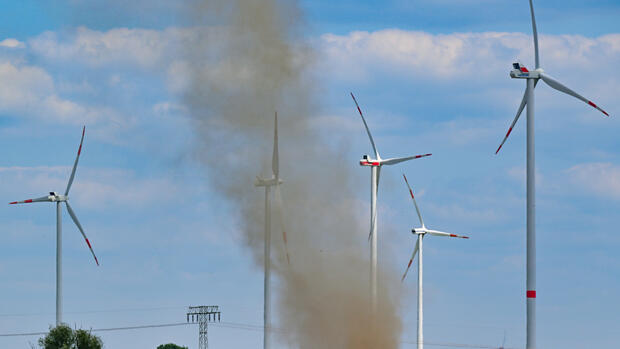According to the scientists, the EU should reduce its emissions by 90 to 95 percent by 2040 compared to 1990.
(Photo: dpa)
Brussels The European Union (EU) should achieve its climate goals almost ten years earlier than previously planned – at least that is what a report by the EU’s scientific advisory board on climate change recommends. The report was presented on Thursday. According to the scientists, the EU should reduce its emissions by 90 to 95 percent by 2040 compared to 1990.
So far, as part of the European Green Deal, the EU has committed to being climate neutral by 2050 and reducing greenhouse gas emissions by 55 percent by 2030 compared to 1990 levels. As part of the “Fit for 55” package, the EU is currently passing several laws designed to help meet climate targets.
The package includes, for example, the rules for emissions trading and the Renewable Energy Directive. The EU Commission has not yet set an interim target for 2040. The report that has now been presented will, among other things, provide a basis for this.
“The Advisory Board’s recommendations underscore the need for bold and disruptive action to achieve carbon neutrality by 2050 in a way that is both fair and feasible,” says Ottmar Edenhofer, Chair of the Climate Advisory Board. For their recommendations, the scientists examined more than 1000 climate scenarios and examined them with regard to their feasibility and environmental risks.
political space
The report shows that there is some policy space to achieve climate goals, with and without nuclear power. Another scenario envisages the expansion of wind and solar energy and the use of alternatives to fossil fuels such as hydrogen.
“There are multiple avenues to achieve carbon neutrality that require careful and adaptive decision-making to guide the different policy options,” says Laura Diaz Anadon, Vice Chair of the Advisory Board. “All of these avenues can bring numerous other benefits, including significant improvements in health and greater energy security.”
>> Read also: No stop to regulation: EU Commission is trying to save nature conservation law
The report also establishes a connection between prosperity and CO2 emissions in industrialized countries and at the same time emphasizes that poorer countries are particularly affected by the consequences of the climate crisis. The Advisory Board is therefore calling for higher ambitions on the part of Western countries and financial compensation, for example through investments in the energy transition or technological support for other countries in the expansion of renewable energies.
“The Scientific Advisory Council on Climate Change is showing us the way,” says MEP Michael Bloss from the Greens. “We are experiencing a year of extremes: heat waves, droughts, floods,” said Bloss. “The seas are heating up to an unprecedented degree, and drinking water is becoming scarce in parts of Europe.” Bloss is therefore calling for emissions trading and burden sharing to be adjusted to the CO2 budget.
More: No stop to regulation: EU Commission is trying to save nature conservation law
